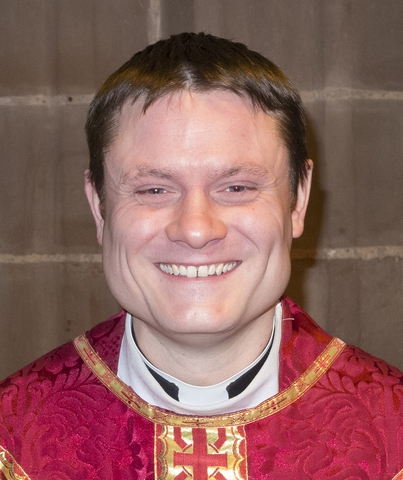
November News From The Clergy
19 Oct 2022 • From the Clergy
2022 has been a year of remembering, both celebratory and poignant. The Platinum Jubilee celebrations of Queen Elizabeth II in June, followed by her death in September, both caused us to cast our minds back across her extraordinarily long seventy-year reign in which the world changed dramatically. One memory in particular surfaced repeatedly, which was the promise Princess Elizabeth made on her twenty-first birthday to dedicate her life to service. Many reflections have focussed on how dutifully she kept that promise across seven decades. In the past, ascending monarchs have made a very obvious break with their predecessors and stated their intentions to act differently (the subtext usually being better). Notably and touchingly, in his first address to the nation, King Charles III made a clear statement of his intention to honour his mother’s memory and continue her legacy. Elizabeth II will not just be a memory, but rather someone whose duty and service will continue to shape the monarchy in the future.
Yet amidst all this, what are we actually remembering? Those remembering the death of one monarch and the accession of a new one will have experienced things very differently this time, everything thrown open to the cameras and available to watch live; 1952 and 1936, the only precedents anyone alive today will recall, were very different. I have no clear memories of Elizabeth II’s reign before 1992 and the ‘annus horribilis’. Other people’s memories will stretch much further back, but even then we experienced most of it second-hand, through media coverage and television programmes. We talk of remembering the Queen’s reign, but we do so in a way very different to how we remember our own lives.
That is a key point as we come to November and the season of remembrance.
First, we do remember very personally, when at All Souls we recall those we have loved and lost, giving thanks for how they have shaped (and continue to shape) our lives. Coming to Remembrance Day and Remembrance Sunday, it is very different. Some do recall their personal losses from World War II and subsequent conflicts, or have been in the armed forces and know the cost of war all too well. For those like me, fortunate enough to have been born long after the
war ended and lived my entire life through peace, remembrance is something else. It is about honouring the memory of those we never knew, who lost their lives in the trauma and horror of conflict, recognising the sacrifice they made.
However, remembrance is about far more than just looking back in horror and raking over the trauma of the past. As we look back upon those horrors, we must also learn from them in order to look forwards and change. We do not honour the memory of the dead if we do not resolve to ensure that they did not die in vain. Remembering the dead of war, we should seek the way of peace, to build a world free of the violence and bloodshed which has claimed so many lives. That will not be easy; as the terrible conflict in Ukraine reminds us right now, evil dictators and rampant nationalism remain potent forces. Yet to simply accept that is the case, and do nothing to change it, is a fatalism alien to both remembrance and the Christian faith. We remember precisely because we believe that things can be different, that we can learn from the past to shape a better future, one in which we follow God’s ways of peace and justice.
There is, after all, no command in the Old Testament which is more insistent and more frequently repeated than that to remember. The Israelites are commanded by God to remember both good and bad, the slavery and pain into which their sinful behaviour led them, as well as the mercy God showed them when they turned from such ways. Remembrance is about far more than simply memory; it is about re-membering, putting back together. Drawing on that Jewish legacy, as Christians we look back and see the ways in which division and selfish action have taken us away from God and led us down a path of destruction.
Recognising that, we must then seek to heal those divisions, to re-member the body of Christ as part of our call to build God’s kingdom.
Phil